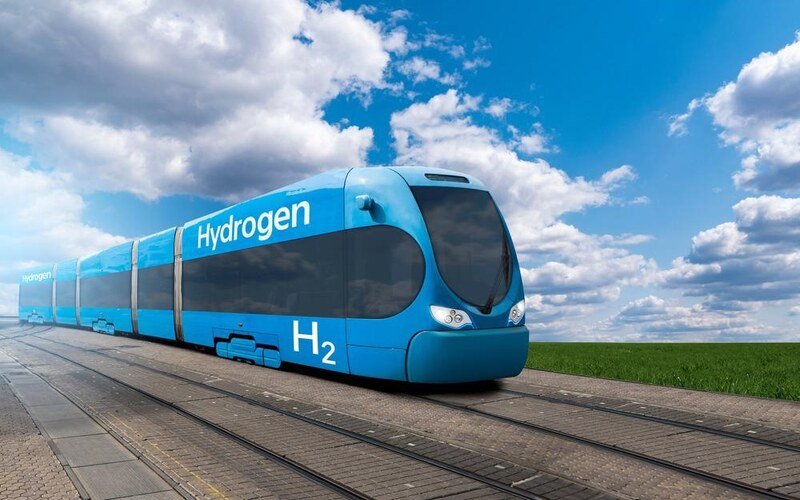Hydrogen-Powered Trains: The Future of Sustainable Rail Travel. As the world continues to seek innovative solutions to reduce greenhouse gas emissions and combat climate change, hydrogen-powered trains have emerged as a promising technology in sustainable transportation. These trains utilize hydrogen fuel cells to generate electricity, offering a clean and efficient alternative to traditional diesel-powered locomotives. In this comprehensive guide, we explore the pros and cons of hydrogen-powered trains, their current status, and their potential to revolutionize the future of rail travel.
The Rise of Hydrogen-Powered Trains
Hydrogen-powered trains have gained significant attention in recent years for their potential to provide an environmentally friendly mode of transportation. Unlike diesel trains, which emit harmful pollutants and contribute to air pollution, hydrogen-powered trains produce zero emissions, with water vapor being the only by-product of their operation. This remarkable feat is achieved using fuel cells that convert hydrogen and oxygen into electricity, powering the train’s traction motors and other onboard systems.
Advantages of Hydrogen-Powered Trains
- Environmental Benefits
One of the primary advantages of hydrogen-powered trains is their contribution to environmental preservation. By eliminating emissions of greenhouse gases and pollutants, these trains play a crucial role in mitigating climate change and improving air quality. The absence of carbon dioxide, nitrogen oxide, and particulate matter emissions significantly reduces the ecological footprint of rail transportation.
- Energy Efficiency
Hydrogen-powered trains exhibit remarkable energy efficiency compared to their diesel counterparts. Fuel cells have a higher energy conversion efficiency, resulting in more efficient utilization of hydrogen fuel. This translates into improved energy savings and reduced dependence on fossil fuels. Moreover, the regenerative braking systems employed in these trains allow for energy recapture, further enhancing their overall efficiency.
- Flexibility and Range
Hydrogen-powered trains offer flexibility in terms of operation. Unlike electrified trains that rely on overhead wires or third rails, hydrogen trains can operate on non-electrified lines, making them suitable for regions with limited electrification infrastructure. Furthermore, hydrogen-powered trains boast an impressive range, enabling long-distance travel without frequent refueling.
- Reduced Noise Pollution
Another notable advantage of hydrogen-powered trains is their quieter operation. By replacing noisy diesel engines with the silent operation of fuel cells, these trains minimize noise pollution, providing a more pleasant and comfortable travel experience for passengers and nearby communities.
Current Implementation and Future Prospects
Hydrogen-powered trains have already made significant strides in their adoption and implementation. Countries like Germany have embraced this clean technology, with fully operational hydrogen trains already in service. Additionally, Amtrak California has placed orders for hydrogen-powered passenger trains scheduled for delivery in 2027. These developments demonstrate a growing interest in hydrogen-powered trains and their potential to transform the future of rail travel.
Barriers and Challenges
While hydrogen-powered trains hold tremendous promise, several barriers and challenges must be addressed to facilitate their widespread adoption:
- Infrastructure Requirements
The establishment of a robust hydrogen infrastructure is essential for the successful integration of hydrogen-powered trains. The production, storage, and distribution of hydrogen fuel demand significant investments and the development of a comprehensive network of refueling stations. Governments, industry stakeholders, and researchers must collaborate to overcome these infrastructure challenges.
- Cost Considerations
The initial costs associated with the implementation of hydrogen-powered trains can be a deterrent to their widespread adoption. However, technological advancements and economies of scale are expected to drive down costs over time, making them a more financially viable option. Governments and financial institutions play a crucial role in providing incentives and support to accelerate the adoption of this sustainable transportation solution.
- Safety and Regulations
Safety considerations related to hydrogen storage and handling are of paramount importance. Robust safety standards and regulations must be in place to ensure the safe operation and maintenance of hydrogen-powered trains. Collaborative efforts between industry experts, regulatory bodies, and research organizations are vital to addressing safety concerns and establishing comprehensive guidelines.
Conclusion
Hydrogen-powered trains represent a significant breakthrough in the quest for sustainable and eco-friendly rail transportation. With their zero-emission operation, energy efficiency, and potential for long-distance travel, these trains offer a compelling alternative to traditional diesel-powered locomotives. While challenges such as infrastructure requirements and cost considerations persist, ongoing advancements and collaborations are paving the way for the widespread adoption of hydrogen-powered trains. As we move towards a greener future, hydrogen-powered trains may play a pivotal role in revolutionizing how we travel, ensuring a cleaner and more sustainable planet for generations to come.

















































